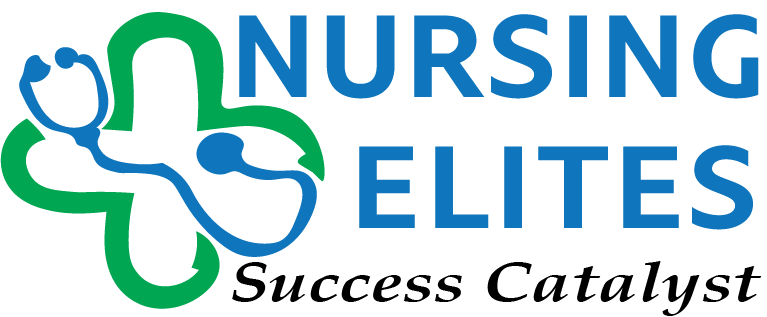Microbiology is a knowledge-intensive branch of biology dealing with microscopic organisms, their structures, and how they operate. If you’re considering a medical career, you might already wonder, is microbiology hard? No doubt. It’s one of the most challenging subjects many medical students struggle with in their undergraduate and post-graduate education. In this article, our nursing experts explore what you need to know about navigating microbiology complexities at any academic level. They also help students with their microbiology assignments and exams.
What’s Microbiology
Microbiology is the study of tiny, living organisms invisible to the naked eye. These microorganisms, also known as microbes, include bacteria, fungi, prions, viruses, archaea, algae, and protozoa. Microbiologists can use microbes to make life-saving drugs, manufacture biofuels, clean up solutions, and produce and process foods and drinks. Microbes are important in biodegradation, biotechnology, climate change, nutrient cycling, and disease control.
Is Microbiology Hard? Challenges Students Face
Here are common challenges making microbiology a challenging discipline for many learners.
Intensive Memorization
Microbiology requires retaining a vast amount of complex information about microorganisms, their structures, and functions. Students must memorize long and complex names in Latin, making it a more formidable challenge. Grasping or pronouncing names like Acinetobacter baumannii can be scary without a proper mindset.
Pharmacological Concepts
Understanding how different drugs react with microbial agents is fundamental to excelling in microbiology. Mastering pharmacodynamics, resistance mechanisms, and treatment strategies can be daunting.
Intense Research and Practicals
Research and practicals are integral to microbiology. Working hours in the laboratories performing experiments and analyzing results are physically and mentally demanding.
Confusing Terminologies
Besides long and complex Latin terminologies, microbiology is full of technical jargon, complex classifications, and specialized terms, which can be confusing for newcomers.
Sheer Volumes of information
The study encompasses the study of diverse organisms and their functions. Testing and identifying an endless list of microbes using the right methods is a formidable challenge that takes time and commitment.
Is Microbiology Hard for You? How to Prepare for Microbiology
Passing a challenging subject like microbiology requires thorough preparation and assistance from the subject expert. Here are helpful tips on preparing for any test in this field.
- Build a strong foundation: Master basic biology, chemistry, and memorization skills early. This knowledge will be invaluable as you advance into more complex subject aspects. Attend all classes and take or record notes to avoid falling back on essential topics.
- Choose the right professors: Professors are your mentors and facilitators in understanding complex topics and interpreting lab results. Choose a professor to guide you through the challenging aspects of microbiology.
- Stay Updated: Discoveries are made in the scientific realm more often. Read scientific journals and articles to keep up with the latest developments in this field. Stay updated about the latest tools and technologies used in the laboratories to test microorganisms.
- Use visual aids: Memorizing complex technical terms requires strategy and creative thinking. Use visual aids such as pre-made flashcard decks, charts, diagrams, mnemonics, videos, infographics, and posters to enhance your mastery of complex terms.
- Practice more: Take practice questions regularly to test your understanding and familiarity with various topics and different types of questions. These also include familiarizing yourself with laboratory procedures, safety protocols, and equipment used.
- Seek professional guidance: Seek help online from experienced educators. These professionals offer great insights and practical knowledge necessary for success in microbiology.
Should You Take Biology Before Microbiology?
Taking general biology is essential in laying a proper foundation for the complexities of microbiology and other sciences like anatomy or physiology. It equips you with various skills necessary for excelling in other fields. Here are key skills obtained in biology studies;
- Research prowess
- Analytical skills
- Teamwork and team building
- Attention to detail
- Problem-solving skills
- Organization skills
- Communication skills
- Numeracy
Is Microbiology Hard? These are Jobs for Microbiology Graduates
Employers in various fields such as healthcare, forensic science, public health, and higher learning institutions value skills developed by microbiologists. Competent students with scientific, problem-solving, and analytical skills can work in professions such as:
- Academic researchers
- Biotechnologists
- Microbiologists
- Clinical scientists, biochemistry
- Clinical scientists, immunology
- Clinical research associates
- Research scientist (life science)
- Biomedical scientists
- Food technologists
- Water quality scientists
- Technical brewers
- Forensic scientists
- Marine biologists
- Science writers
- Ecologists
- Paleontologists
- Environmental engineers
Is Microbiology Hard for You? Get Professional Help on the Subject
Is microbiology hard? Complex terminologies, intense research, hands-on practicals, and the sheer volume of information to consume make microbiology a physically and mentally demanding discipline. Contact our Nursing professionals to learn the art of memorizing complex terms and harness their vast experience in lab techniques and expertise.




